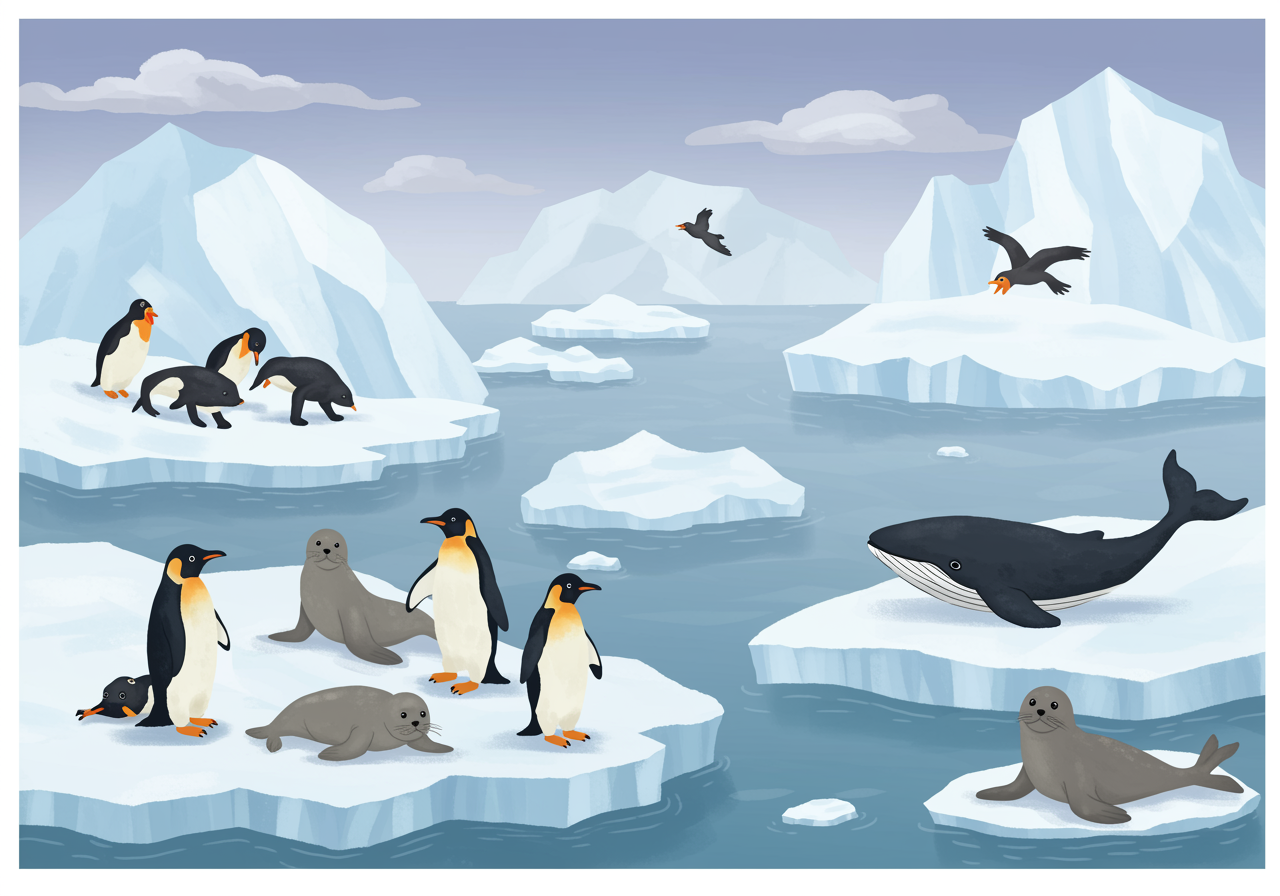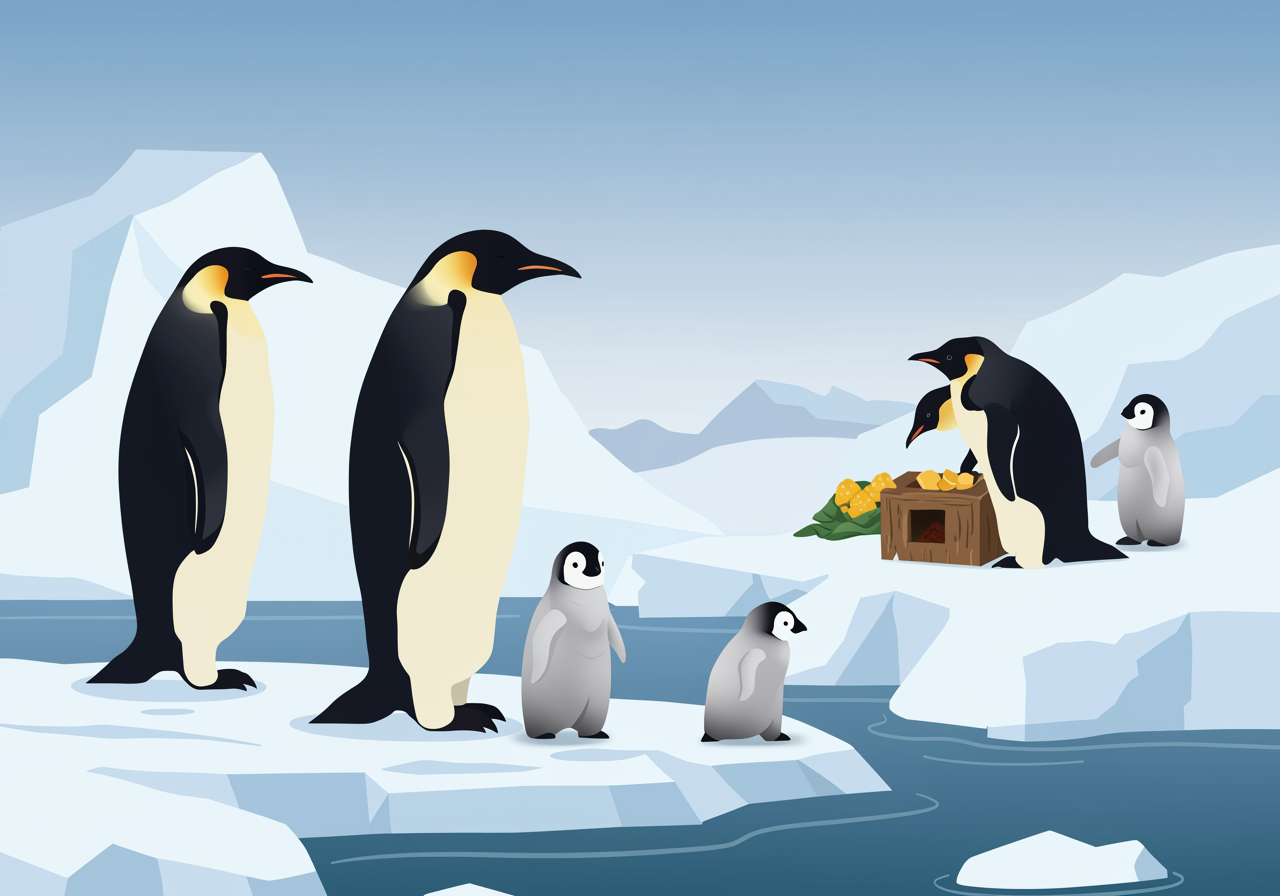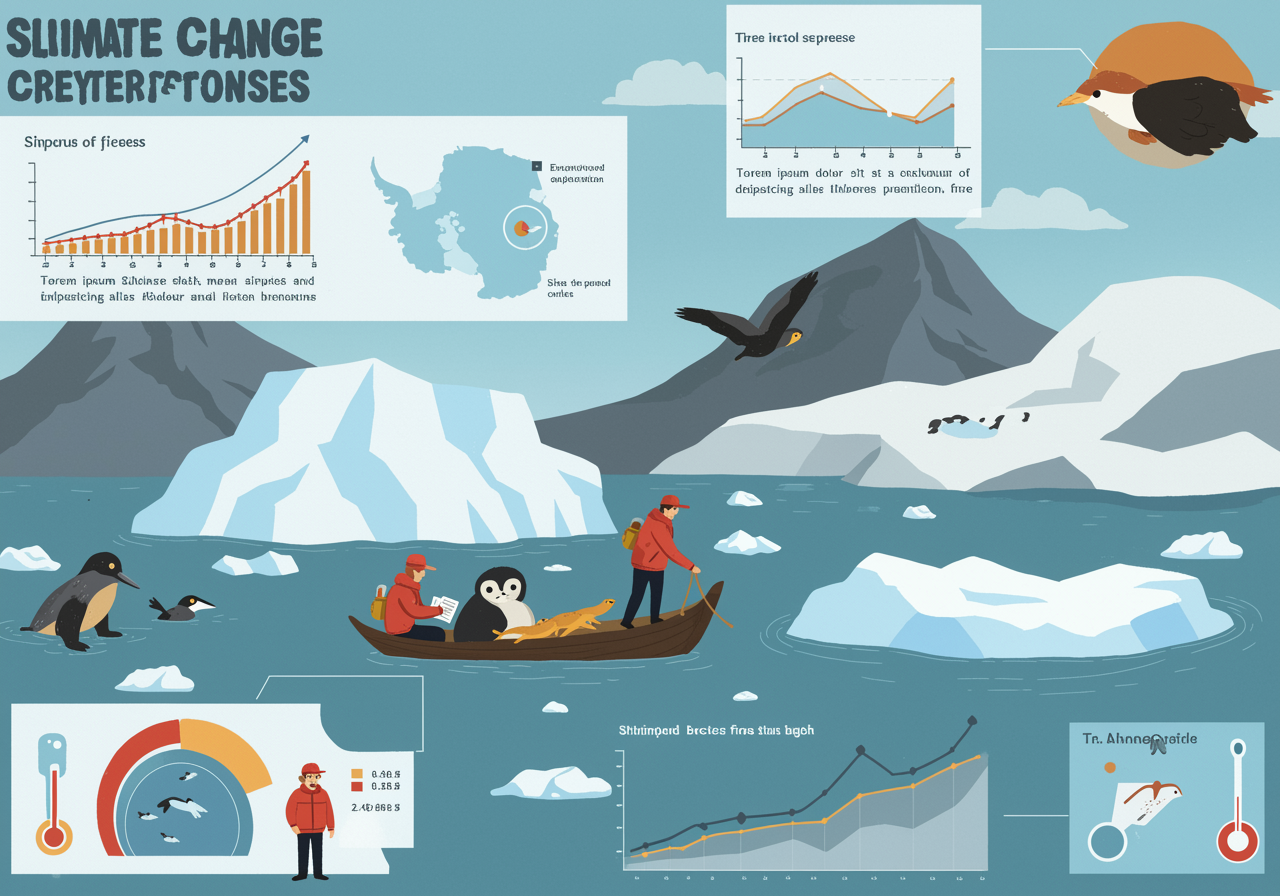Antarctica’s Wildlife Adventure: When Home Base Starts Melting

Discover how penguins, seals, and whales are adapting to their changing icy world
Join your family on an exciting journey to understand how Antarctica’s amazing animals are dealing with their melting home and what their future might look like.
Overview
Antarctica isn't just a giant ice cube – it's home to some of the world's most incredible animals! Think of it like a massive apartment building made of ice, where penguins, seals, whales, and other amazing creatures have lived for thousands of years. But what happens when that apartment building starts changing? As the ice melts faster than ever before, these animals are facing the biggest home renovation project in history. This is a perfect chance to explore with your child how animals adapt, what scientists are discovering, and why understanding these changes helps us learn about our whole planet.

Understand in 30 Seconds
Get up to speed quickly
- Ice = Home Base: Antarctic ice isn't just frozen water – it's like a giant platform where animals rest, hunt, and raise their babies. When it melts, it's like their neighborhood is literally disappearing.
- Penguin Housing Crisis: Emperor penguins need solid ice to breed and raise chicks. Less ice means fewer safe spots for penguin families, forcing them to travel much farther to find food.
- Ocean Food Web Shake-Up: Tiny krill (penguin and whale food) live under the ice. Less ice means less krill, which means hungry penguins, seals, and whales throughout the food chain.
- Climate Speedometer: Antarctic animals are like nature's early warning system – when they struggle, it tells scientists how fast our planet's climate is changing.
Real Life Scenario
Situations you can relate to
Imagine your family had to move houses every few months because your neighborhood kept changing. That's what's happening to Antarctic animals right now! Picture a colony of emperor penguins – they're like a tight-knit community that meets at the same ice 'parking lot' every year to have their babies. But now, that parking lot might not be there when they arrive, or it might break apart before their chicks can swim. It's like showing up to your favorite playground only to find it's been replaced by a lake! The penguins have to become super flexible, finding new spots and learning new routes. Scientists are watching this happen in real-time, like nature documentarians following the most important moving story on Earth. What do you think these animals might need to figure out to survive in their changing world?

Role Play
Spark a conversation with “what if” scenarios
What if you were a penguin parent and your usual nesting spot disappeared overnight?
- Role play: One parent plays a penguin trying to find a new safe place to raise chicks, while the child plays a scientist observing and helping track the penguin's journey. Use pillows as ice floes!
What if you were a leopard seal and your favorite hunting grounds under the ice were suddenly gone?
- Role play: Create a 'food web game' where you act out how losing ice affects everyone from tiny krill to massive whales. Use string to show how everyone's connected!
What if you were a climate scientist trying to predict what Antarctica will look like in 20 years?
- Role play: Use maps, photos, and imagination to 'time travel' together. One person presents evidence about current changes while the other makes predictions about animal adaptations.
FAQs
Frequently asked questions people want to know
Will all the penguins disappear if the ice keeps melting?
Not all! Animals are amazing adapters. Some penguin species might struggle more than others, but many will likely find new ways to survive. Scientists are working hard to understand and help them.
How fast is the ice actually melting in Antarctica?
Antarctica loses about 150 billion tons of ice each year – that's like 60 million Olympic swimming pools! It sounds huge, but Antarctica is massive, so this happens gradually over time.
Are there any animals that might actually benefit from less ice?
Yes! Some animals like fur seals might find new areas to explore, and certain fish species could expand their range. Nature often finds surprising ways to adapt and thrive.
Examples in the Wild
See how this works day to day
- Emperor penguin colonies at Halley Bay completely abandoned their breeding site for three years running due to unstable sea ice (British Antarctic Survey, 2019)
- Adelie penguin populations declined by 65% in some Antarctic Peninsula regions over the past 25 years (WWF Antarctic Wildlife Research, 2022)
- Weddell seals are spending more energy finding breathing holes as ice patterns change unpredictably (Journal of Marine Biology, 2023)
- Humpback whales are staying in Antarctic waters longer due to extended ice-free seasons (Marine Mammal Science, 2023)
In Summary
What you should know before you start
- Antarctic ice serves as home, highway, and hunting ground for amazing animals like penguins, seals, and whales
- Melting ice forces these animals to adapt by finding new homes, changing migration patterns, and adjusting their survival strategies
- The effects ripple through the entire food web, from tiny krill to massive whales, creating challenges throughout the ecosystem
- Scientists are tracking these changes to understand both animal adaptation and our planet's changing climate patterns
Pro-tip for Parents
You got this!
If your child gets worried about the animals, remind them that humans are really good at solving problems when we work together. Focus on the amazing ways animals adapt and the cool science being done to help them. Ask 'What would you do if you were that animal?' to keep them thinking creatively rather than just feeling sad. This builds problem-solving skills and shows them they can be part of solutions too!

Keep an Eye Out For
Find these examples in everyday life
- Wildlife documentaries featuring Antarctic animals – perfect for family movie nights with built-in discussion topics
- News stories about polar research expeditions or new animal discoveries in Antarctica
- Local zoo visits where you can see penguins and discuss how zoos help with Antarctic animal research and conservation
Explore Beyond
Look up these related research topics
- How do other Arctic animals (polar bears, arctic foxes) deal with melting ice in the North Pole?
- What role do ocean currents play in moving heat around the planet and affecting polar ice?
- How are scientists using satellites and robots to study Antarctic wildlife without disturbing them?